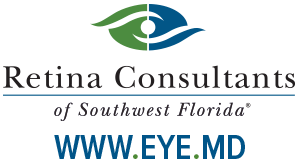Unprotected Sun Exposure Damaging
by Dr. Glenn L. Wing
Originally Published in the News Press on August 5, 2014
There is a reason Florida has earned the nickname The Sunshine State. We can almost always count on having a beautiful day here in paradise. Because
of this, we spend much of our time at the beach, boating, on the golf course, gardening or doing various other outdoor activities.
Studies have shown that unprotected sun exposure can cause longterm damage to the skin and eyes regardless of age. Ultraviolet (UV) radiation is invisible rays that are a part of the energy that comes from the sun. Depletion of the ozone layer decreases the earth’s natural protection from the sun’s harmful UV rays. In addition to skin cancer and premature aging, the UV rays can cause or exacerbate certain types of eye disease, such as:
Photokeratitis or “sunburned eye” affects the cornea and/or conjunctiva
Direct sunlight, glare from the sun’s reflection on water or sand, or artificial UV (e.g.tanning beds, arc welding) can cause this condition resulting in pain and blurred vision.
Pterygium
A growth that starts on the white part of the eye but can involve the cornea causing decreased vision or eye irritation.
Cataract
The clouding of the natural lens of the eye that can cause blurred vision.
Macular Degeneration or Macular Damage
—Deterioration of the central retina that can lead to permanent central vision loss.
Squamous Lesions
Tumors that can grow on eyelids, cornea, or conjunctiva that can cause tissue damage or blindness. The eyes and surrounding skin are particularly susceptible to cancers due to their fragile, thin structures.
There are many inexpensive options that can help protect eyes:
- Wear Sunglasses: Choosing sunglasses that filter out 99-100 percent of UV rays can greatly reduce the risk of damage to the eyes. Polarized lenses can also be helpful in reducing glare. Make sure they fit correctly so that they protect your eyes and the surrounding structures.Wear sunglasses outdoors even on cloudy days — UV rays are present even when it is overcast. Make sure to keep a spare pair in case one is lost or broken.
- Use Sunscreen: Choose a sunscreen or moisturizer specially formulated for use around the eyes that contains SPF (sun protection factor) of 15 or more and use it daily. When out in the sun or in the water, make sure
- Wear a hat: A wide-brimmed hat can greatly shield the face and eyes from the sun
- Avoid midday sun: The sun’s strongest UV rays are at their strongest in the late morning and early afternoon.
- Be aware of medications that can cause photosensitivity: Ask your doctor if you are taking any medication that causes increased photosensitivity.
Please visit our website at eye.md or visit aao.org for more information about eye disease and the sun’s potentially harmful effects on your vision.
